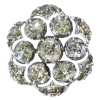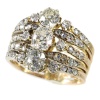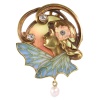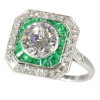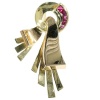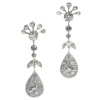We offer layaway, spread payments on the piece of your dreams. Ask us for details. Free insured shipping on all orders !!!
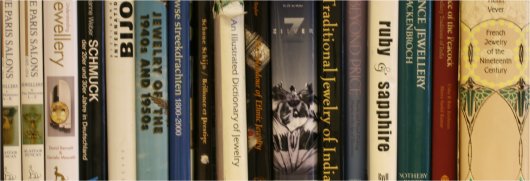
Antique jewelry glossary
Welcome to our extensive antique jewelry glossary with around 1,500 jewelry related entries.If you feel you are missing an explanation, feel free to let us know and we will add it.
A - B - C - D - E - F - G - H - I - J - K - L - M - N - O - P - Q - R - S - T - U - V - W - X - Y - Z all
Semi-precious stone
A gemstone or gem, also called a precious stone or semi-precious stone, is a piece of attractive mineral, which — when cut and polished — is used to make jewelry or other adornments. However certain rocks, (such as lapis-lazuli) and organic materials (such as amber or jet) are not minerals, but are still used for jewelry, and are therefore often considered to be gemstones as well. Most gemstones are hard, but some soft minerals are used in jewelry because of their lustre or other physical properties that have aesthetic value. Rarity is another characteristic that lends value to a gemstone. (from: Wikipedia)
Semi-precious stone
A term that has fallen into disuse among gemmologists and jewellers and has been discouraged vigorously by European jewellers' associations and the Gemmological Association of Great Britain on the grounds that it is too vague (embracing a great variety of stones, some of which are used mainly for ornamental purposes rather than jewelry), and misleading (as not taking into consideration various factors affecting the comparative values of stones, such as the quality of a smaller superior stone in relation to a poor-quality large stone).
The term had always excluded synthetic gemstones, glass, paste, and plastics, as well as organic substances, e.g. coral, amber, jet, ivory, tortoise shell.
It is sometimes still used to refer to all gemstones other than precious stones, but is preferably to be avoided.
From: An Illustrated Dictionary of Jewelry, autor: Harold Newman, publishers: Thames and Hudson



